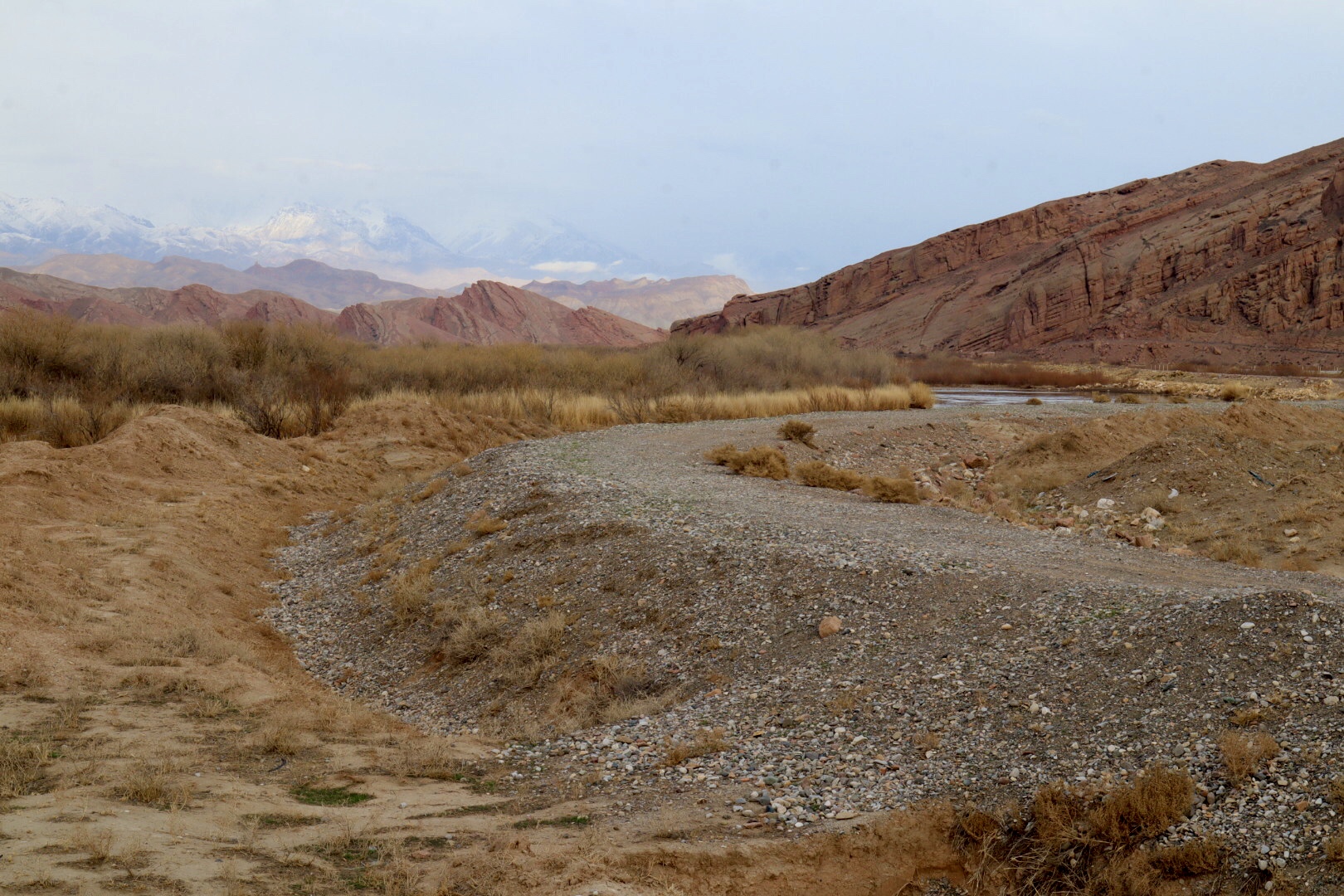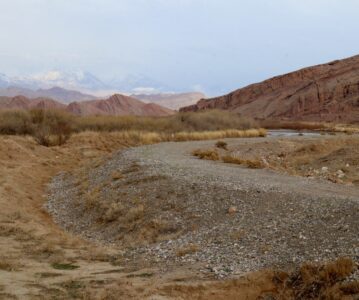On March 13, the time has finally come: we load our bikes and ride to the nearby border crossing into Iran. Even after four days in this wild region, we still haven’t had our fill of the rocky, steep mountains that pile up here on both sides of the border river. Pomegranates are grown on the Armenian side. Only here grows this Armenian national fruit, which is present throughout the country on ceramics, fabrics, carvings and even as wine.
The border crossing is designed for the movement of goods between Armenia and Iran and we meander briskly past the waiting trucks on our bikes. Finally, all three of us cross the border river and are now on Iranian soil.
The next hour gives us a foretaste of various aspects of life in Iran: Before the border official stamps our visa, a completely unnecessary, totally useless insurance policy is forced on us for a few dollars. Dubious machinations on a very official level. Other officials steal at us, ask us about our nationality, praise Switzerland and cheerfully shout “Welcome to Iran” at us. To change money we find ourselves a young Iranian, who in turn organizes a friend who pulls a thick wad of notes from his trouser pocket. Here we calculate in Toman and not in Rial. The exchange rate is 1 to 26, which means 260`000 Rial. We are confused to say the least. We change our first 10 $ and say goodbye to Gregory, who is drawn to the Caspian Sea. The narrow, steep valley swallows us up and immediately and somewhat incredulously we are now driving on Iranian soil along the Armenian-Iranian and later the Azerbaijani-Iranian border. The border guards, standing guard all alone somewhere in this nowhere, nod at us or stare at us with interest from their armored vehicles. Otherwise there is little traffic here.
The valley opens up to a hilly plain and in the first village the apricot trees are in bloom. At last, spring can be glimpsed! After more than four months of cold, freezing and bare trees, we long for leaves, greenery and the warmth of the sun.
We drive through the small town of Jolfa (“Welcome to Iran!”) and after our 80 km afternoon drive we find a ruined building as a hidden campsite.
The next day is sunny against all expectations, but a bitingly cold headwind makes it difficult for us to continue our journey towards Marand. Towards evening we reach the city and dedicate ourselves to our next logistics project: finding an Iranian sim card. The Persian New Year is just around the corner and all Iranians are shopping: Fireworks, sprouted wheat, sweets and goldfish are offered at the roadside and people stream through the narrow sidewalks. Giggling girls whisper “Tourist!” to each other at the sight of us, children stare obliviously, men turn their heads or greet with interest. Soon Bahram approaches us. Louie’s Farsi already works wonders and the nice man spontaneously walks with us through the streets until we find what we are looking for in an inconspicuous side alley. In the meantime it has become dark and we are really happy when Bahram offers us to spend the night with his family.
The family is as announced Bahram`s wife and two children and a little less announced his brother Behram, his sister Leila together with husband and child, and his parents. Nobody speaks English and so we communicate with Louie`s Farsi-brocks, our Translate- App and hands and feet. Soon we realize: We are not in “Farsi land” here at all. The people call themselves Azerbaijanis or Turks and speak a Turkish dialect!
The large room, which is a parlor, bedroom and reception hall in one, is covered with wonderful, homemade Persian carpets. A gas stove blazes in the corner and soon we are comfortably warm, we drink the obligatory tea and enjoy the delicious food, which is served on the large sofra. For the meal in the main room, a cloth or plastic sheet is simply laid out on the carpets, plates and spoons are distributed and steaming rice and flatbread are placed in the middle. In addition, gurme sabzi (vegetable broth with beans and meat), johghurt, torshi (pickled vegetables), salad, and sometimes roasted meat are served in bowls or plates. In the Iranian living room, furniture is largely unnecessary. Thanks to the numerous cushions and the noble carpets it is comfortable to sit, even if our shaken knees do not find the long hours in cross-legged sitting so great.
After long conversations about life in Iran, secret girlfriends, unpopular politicians and beautiful Switzerland, the thin, surprisingly comfortable mattresses are rolled out and we sink into a pleasantly warm sleep.
After breakfast the next morning, it starts to snow. Snow. Cold. Again. Still. This damn winter just won’t end. The family persuades us without any problems to spend another day in Marand. For the morning meal we have fresh flat bread, cream cheese, jam and the obligatory tea and shortly after we are sitting with Bahram and Behram in his car and bump through the city, briefly through the bazaar and then to Behram’s place of work. Today no one seems to work properly and so we can have a look at the furniture workshop in peace. Apparently, Marand is known for the magnificent, hopelessly kitschy decorative chairs that we simple Swiss can only imagine in the throne room of Versailles. In Behchram’s workshop, the cut parts are assembled, and in the other workshops we can examine all the other work steps. The most impressive is definitely the huge CNC milling machine, which saws out the decorated backrests in piecework.
We spend the afternoon with Behram’s family at the other end of town. Towards evening there is action again. The neighbors have gathered around an ever-growing fire and from everywhere we hear the explosions of fireworks. The children and women scare each other with firecrackers and only when a bearded man appears do we understand what the really loud bangers are: After a heads-up, the bearded man throws a homemade firecracker against a nearby wall. The thing detonates with a loud boom and we are all enveloped in a thick cloud of smoke. That’s how it goes in Iran. The mood is upbeat and happy, everyone laughs together and we are wonderfully integrated into the crowd. We are especially impressed by the brash neighboring women who light fireworks and loudly heat up the party. Sure, they all wear the obligatory headscarf, but that really says very little about the status or self-confidence of the women here. Bahram explains that the big fires and fireworks are also a small rebellion against the unpopular government. The celebration is old but not official and provokes those in power. Fortunately, no uniforms appear after a few more self-made mini bombs made of aluminum foil, chlorine and pet bottles we enjoy a delicious dinner in the circle of the extended family.
Our feet are twitching and despite the cold and the snow that soon starts, we set off the next morning in the direction of Tabriz.
Translated with www.DeepL.com/Translator (free version)


